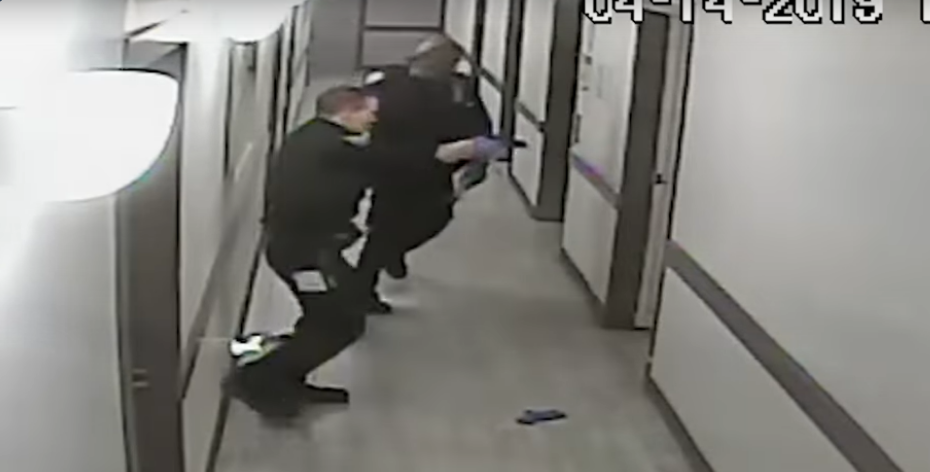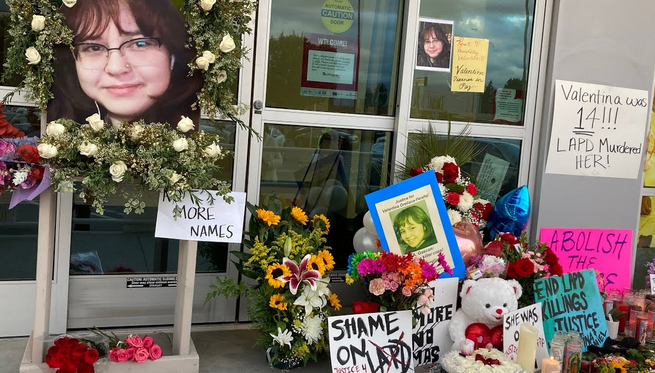It is also striking that UPDF and LRA rarely engaged each other. There is a long-standing relationship (covert and overt) between the Museveni regime and LRA leadership.
Open letter to the Lord’s Resistance Army (LRA): Dear Mr. Martin Ojul: In a press statement on April 26, Nyekorach Matsanga, Lord’s Resistance Army (LRA) delegate and spokesman, called for the removal of LRA from the list of “international terrorist organizations.�
Then, out of thin air, he gratuitously inserted my name: “People like Olara Otunnu want to come to participate in this peace process but they fear to be labeled terrorists.�
No clarifications have followed this or previous disinformation. I see that LRA and President Museveni’s regime have now joined together in orchestrating this smear campaign. The purpose of this campaign is to intimidate me (and others who dare to speak the truth), to silence and discredit my message and revelations.
I have never been a member or supporter of LRA. On the contrary, I have always condemned in the strongest terms, massacres, maiming and abduction of children by LRA. Similarly, I have denounced the massacres committed by the government troops.
I reject the invidious narrative, which bears a simple formula: If you are ethnic Acoli, then, by definition, you are LRA. By the same logic, LRA is portrayed as representing the Acoli.
I reject the notion that: If you condemn LRA atrocities, this means that you are pro-Museveni; and if you expose Museveni’s crimes, then you must be an LRA supporter! This is a moral trap. It is a contrived dichotomy, a false choice, which has comforted a deep culture of silence and impunity.
The leaderships of both the Museveni regime and LRA must be held fully accountable for what they have done.
In Lwo jurisprudence, there is no contradiction between accountability and reconciliation. Indeed, the two are aligned. Above all, impunity (atimo nyong, do!) is never, ever accepted.
That is why I am very disturbed by Joseph Kony’s persistent denials of LRA atrocities. How painful for victims and families. I urge Kony to personally and directly level with the victim communities. Kony needs to reciprocate the incredible magnanimity manifested by the victims. Although they have suffered unbelievably, they have chosen the painful path of dialogue, accountability, forgiveness and reconciliation. With or without the specter of ICC, Kony needs to respond directly and in kind to this gesture.
Mato oput is predicated on full acceptance of one’s responsibility for the crime or taboo committed. In Lwo jurisprudence, redemption is possible, but it passes necessarily through this voluntary admission of wrongdoing, acceptance of responsibility, and the seeking of forgiveness, which then opens the way for healing.
The very conduct of the NRM / LRA war also calls for serious scrutiny. UPDF occupied DR Congo; it occupies southern Sudan; and is now in Somalia. It is not convincing to contend that, for over 15 years, with massive budgets, and significant military aid and hardware, UPDF has lacked the capability to defeat a struggling LRA, which enjoys no popular support and is composed mostly of abductees . It is also striking that UPDF and LRA rarely engaged each other.
There is a long-standing relationship (covert and overt) between the Museveni regime and LRA leadership.
It is now well – documented that great ‘ facilitation’ has been at play for many years: extensive satellite airtime has been provided; and families of some LRA leaders have been under direct support by the government. LRA leaders, like Kenneth Banya and Sam Kolo, upon exiting the bush, have been accorded VIP treatment, and all have become Museveni’s strong allies. During the Besigye treason trial, government produced, at the drop of a hat, a whole line of LRA operatives as state witnesses. I ask you: what has really been going on?
For the sake of the victims, full light must be shed on the nature, scope, and duration of this special relationship.
I strongly support the Juba peace process. I have great respect for the mediator, Dr. Riek Machar. May I impress to your attention, some preoccupations. First, the most urgent issue, barring none, is ending the genocide. This must begin with the immediate dismantling (not decongesting) of all concentration camps. This requires an organized program of return to wii obur (long- abandoned homesteads), provision of resettlement supplies, international monitoring team, and adequate security arrangements.
With the cessation of hostilities and the withdrawal of LRA from Ugandan territory, following the government’s own logic, there is no longer any pretext for holding people in concentration camps. Why then is the dismantling of the camps not front-and-centre of the Juba talks?
Second, the victim communities have the highest stake in certain critical issues—genocide and its aftermath; war crimes; truth-telling and accountability; resettlement and recovery; a ‘Marshall’ reconstruction fund and program land; and reparations.
There is need for a two-phase peace process, incorporating this broader agenda and participation. Only this can lead to an authentic and comprehensive political settlement. I will continue to press for full responsibility and accountability for the crimes committed. We owe this to the victims.
The writer is the former UN Under-Secretary General for Children and Armed Conflict. He is president of LBL Foundation for Children based in New York City.
This article first appeared in The Monitor (www.monitor.co.ug)
To subscribe to or advertise in New York’s leading Pan African weekly investigative newspaper, please call (212) 481-7745 or send a note to [email protected]
“Speaking Truth To Empower.�
EXPOSING SOME UNCOMFORTABLE FACTS ON UGANDA’S GENOCIDE
Open letter to the Lord’s Resistance Army (LRA): Dear Mr. Martin Ojul: In a press statement on April 26, Nyekorach Matsanga, Lord’s Resistance Army (LRA) delegate and spokesman, called for the removal of LRA from the list of “international terrorist organizations.�
Then, out of thin air, he gratuitously inserted my name: “People like Olara Otunnu want to come to participate in this peace process but they fear to be labeled terrorists.�
No clarifications have followed this or previous disinformation. I see that LRA and President Museveni’s regime have now joined together in orchestrating this smear campaign. The purpose of this campaign is to intimidate me (and others who dare to speak the truth), to silence and discredit my message and revelations.
I have never been a member or supporter of LRA. On the contrary, I have always condemned in the strongest terms, massacres, maiming and abduction of children by LRA. Similarly, I have denounced the massacres committed by the government troops.
I reject the invidious narrative, which bears a simple formula: If you are ethnic Acoli, then, by definition, you are LRA. By the same logic, LRA is portrayed as representing the Acoli.
I reject the notion that: If you condemn LRA atrocities, this means that you are pro-Museveni; and if you expose Museveni’s crimes, then you must be an LRA supporter! This is a moral trap. It is a contrived dichotomy, a false choice, which has comforted a deep culture of silence and impunity.
The leaderships of both the Museveni regime and LRA must be held fully accountable for what they have done.
In Lwo jurisprudence, there is no contradiction between accountability and reconciliation. Indeed, the two are aligned. Above all, impunity (atimo nyong, do!) is never, ever accepted.
That is why I am very disturbed by Joseph Kony’s persistent denials of LRA atrocities. How painful for victims and families. I urge Kony to personally and directly level with the victim communities. Kony needs to reciprocate the incredible magnanimity manifested by the victims. Although they have suffered unbelievably, they have chosen the painful path of dialogue, accountability, forgiveness and reconciliation. With or without the specter of ICC, Kony needs to respond directly and in kind to this gesture.
Mato oput is predicated on full acceptance of one’s responsibility for the crime or taboo committed. In Lwo jurisprudence, redemption is possible, but it passes necessarily through this voluntary admission of wrongdoing, acceptance of responsibility, and the seeking of forgiveness, which then opens the way for healing.
The very conduct of the NRM / LRA war also calls for serious scrutiny. UPDF occupied DR Congo; it occupies southern Sudan; and is now in Somalia. It is not convincing to contend that, for over 15 years, with massive budgets, and significant military aid and hardware, UPDF has lacked the capability to defeat a struggling LRA, which enjoys no popular support and is composed mostly of abductees . It is also striking that UPDF and LRA rarely engaged each other.
There is a long-standing relationship (covert and overt) between the Museveni regime and LRA leadership.
It is now well – documented that great ‘ facilitation’ has been at play for many years: extensive satellite airtime has been provided; and families of some LRA leaders have been under direct support by the government. LRA leaders, like Kenneth Banya and Sam Kolo, upon exiting the bush, have been accorded VIP treatment, and all have become Museveni’s strong allies. During the Besigye treason trial, government produced, at the drop of a hat, a whole line of LRA operatives as state witnesses. I ask you: what has really been going on?
For the sake of the victims, full light must be shed on the nature, scope, and duration of this special relationship.
I strongly support the Juba peace process. I have great respect for the mediator, Dr. Riek Machar. May I impress to your attention, some preoccupations. First, the most urgent issue, barring none, is ending the genocide. This must begin with the immediate dismantling (not decongesting) of all concentration camps. This requires an organized program of return to wii obur (long- abandoned homesteads), provision of resettlement supplies, international monitoring team, and adequate security arrangements.
With the cessation of hostilities and the withdrawal of LRA from Ugandan territory, following the government’s own logic, there is no longer any pretext for holding people in concentration camps. Why then is the dismantling of the camps not front-and-centre of the Juba talks?
Second, the victim communities have the highest stake in certain critical issues—genocide and its aftermath; war crimes; truth-telling and accountability; resettlement and recovery; a ‘Marshall’ reconstruction fund and program land; and reparations.
There is need for a two-phase peace process, incorporating this broader agenda and participation. Only this can lead to an authentic and comprehensive political settlement. I will continue to press for full responsibility and accountability for the crimes committed. We owe this to the victims.
The writer is the former UN Under-Secretary General for Children and Armed Conflict. He is president of LBL Foundation for Children based in New York City.
Â
This article first appeared in The Monitor (www.monitor.co.ug)
To subscribe to or advertise in New York’s leading Pan African weekly investigative newspaper, please call (212) 481-7745 or send a note to [email protected]
“Speaking Truth To Empower.�











